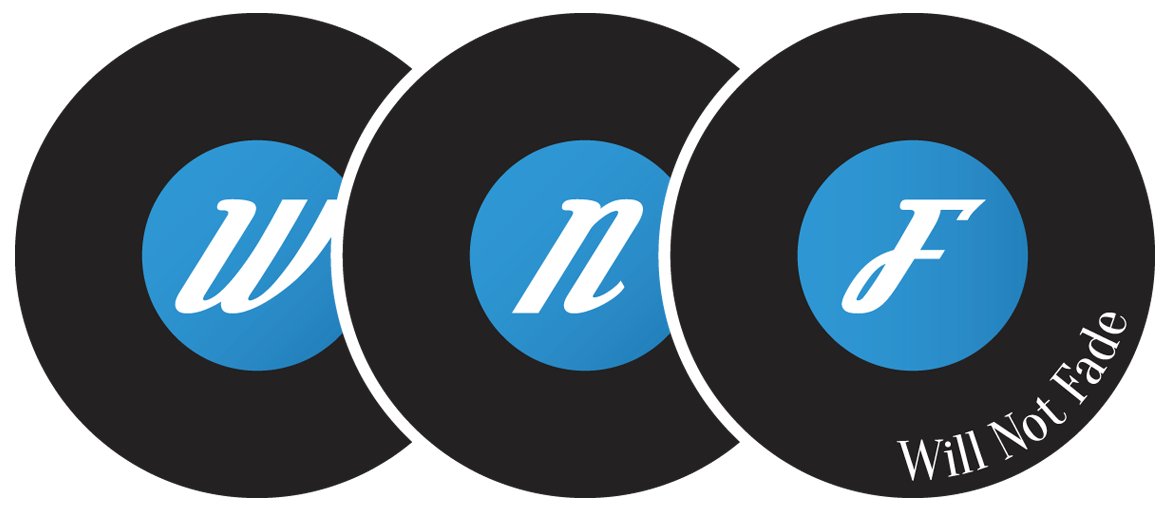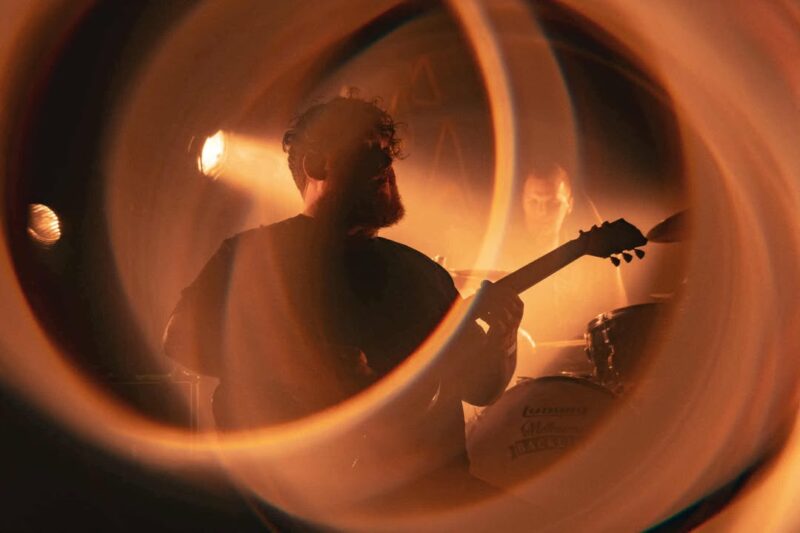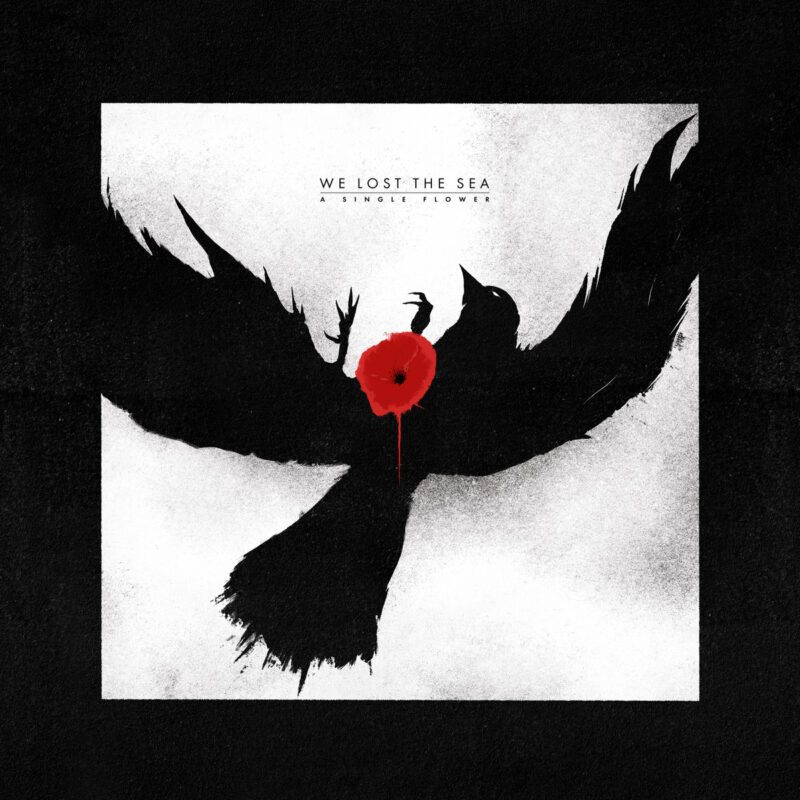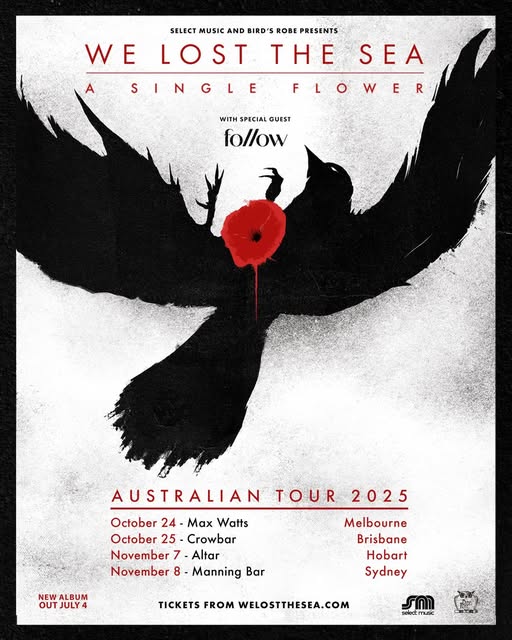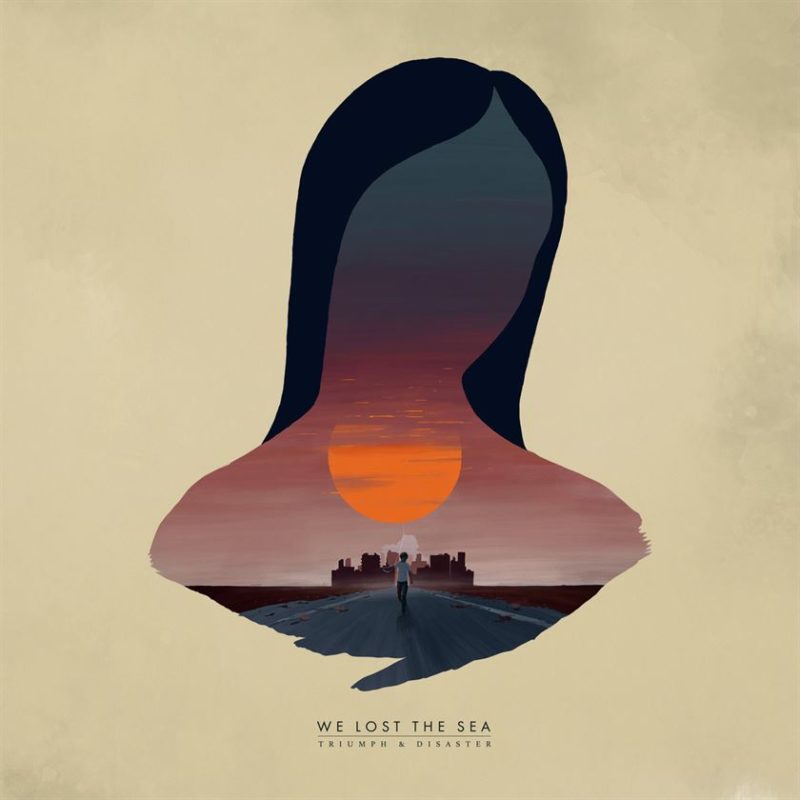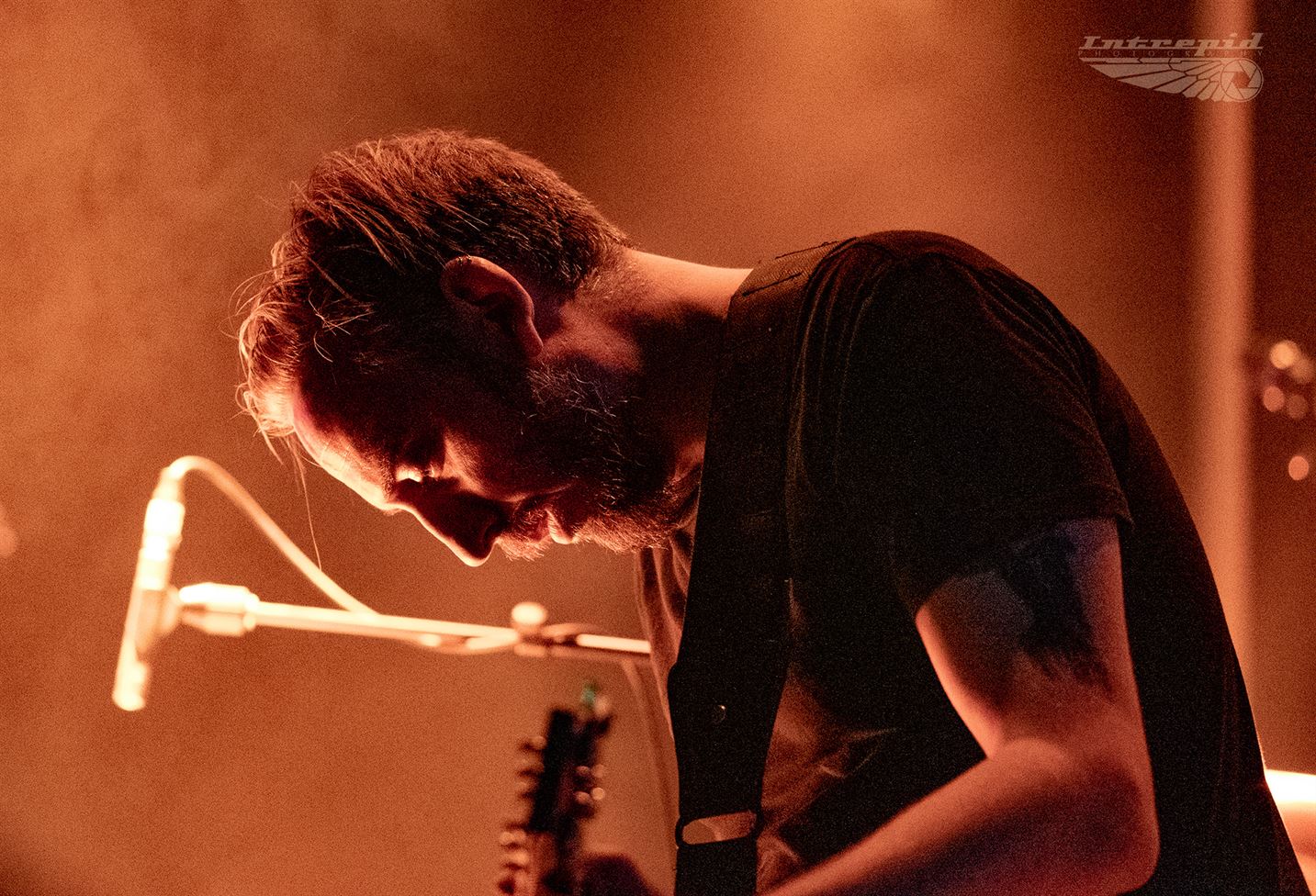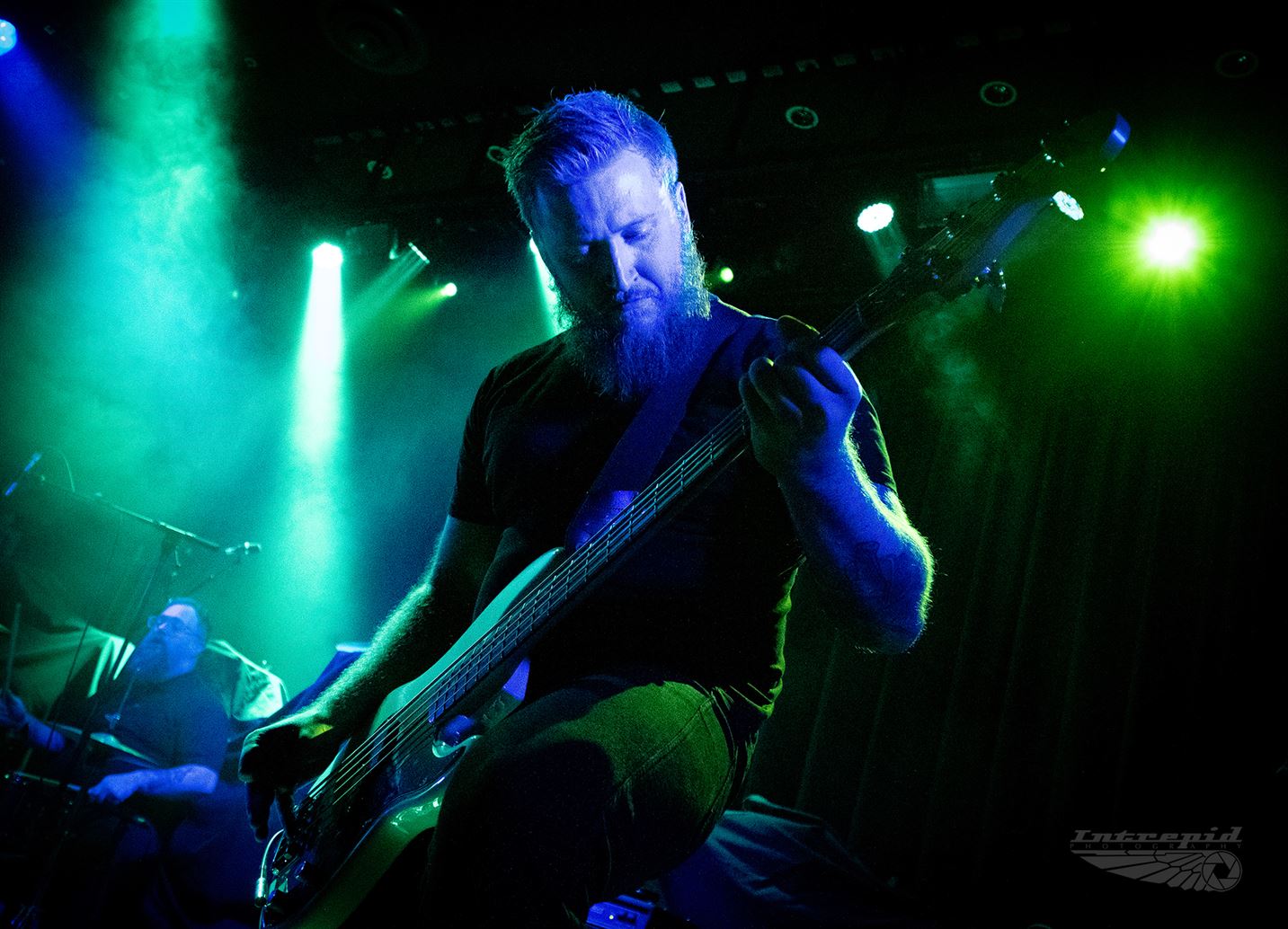Sydney post-rockers We Lost The Sea have just released their new album, A Single Flower, and are about to embark on their first USA tour along with hubris. Long time fan and friend of the band Gilbert Potts connected with founding member Mark Owen to discuss.

Gilbert Potts: Thanks for agreeing to an interview with Will Not Fade, and congratulations on the new album A Single Flower and the US tour.
Mark Owen: Thanks Gilbert, I know this isn’t a question, but I just wanted to thank you for your support over the years. It is always great to see you up front of the stage having a great time. Your passion is infectious and you have become a very valued member of the big extended WLTS family.
1. What’s the most beautiful sound you’ve ever heard?
Oh man, this is a hard one. Let me think about it. I’ll let you know.
2. You’ve built a strong following over the last eighteen odd years from just four releases, and for many fans it’s mostly the appeal of the thirteen tracks from the last two, instrumental ones. Why do you think people feel such a strong connection to your music?
I think maybe it seems to work out that way for a few reasons. With Departure Songs we really talked about a universal phenomenon of grief and loss, something that everyone experiences, as Nick Cave says: “that if we love, we grieve.” With Triumph & Disaster, we talked about our, humanities, relationships with the earth and each other and it came out at the perfect time really, in the middle of the plague. Well, maybe great topically, just not for touring a new album. Ha.
These are things that people can easily connect to, can easily empathise with and can feel heard about. Which is what we all want at the end of the day, to be seen, feel heard and have our fears and hopes and dreams validated. I think the storytelling and the artwork really helps, although we strive to not be disingenuous. We never write a riff we don’t mean, if it’s angry we are angry about something, if it’s sad we are sad about something. Art imitates life. Listeners can discern if someone is being full of shit, they might not be able to articulate it, but they can tell, especially live. I’ve seen a bunch of Post-Rock bands who are NOT genuine and it really comes across as a bit gross live.
Another reason, without tooting our own horn, we are pretty approachable guys. We love a laugh and a beer and we always try to make time online or in person to talk to people. It has led to some really memorable funny moments as well as hearing some horrifying and heartbreaking stories. We’ve been put into this really amazing position where we get to hear all these peoples stories and it’s a privilege.
3. You’re the last OG of WLTS. What have you gained along the way, both as a band and you personally?
I have experienced some of the greatest moments of my life in this band, not all of them playing shows. Some core memories have definitely been unlocked on tours outside of the shows. Drinking wine on the steps of the Sacré-Cœur with Solkyri and our crew singing “Wonderwall”, of course, bloody Australians, drinking beers in Biergartens in Dusseldorf or snow in Prague, food in China. All of it has been amazing. I’ve gained friends for life, in other bands, in promoters, in people who started as fans and became great friends (not you Bruce from Pray For Sound).I’ve been surrounded by the best crew, Matt, Zoe, Chris, Anton, Mike, Jef the list goes on. We’ve played with some of our favourite bands, met some of our favorite musicians.
But I think what I have gained most of all is a sense of meaning, in all of this. It is something I struggle with, a Camus-like constant questioning, if you follow me on social media you know some of my content can be quite nihilistic at times, and in the moments when I am playing music or sharing a vodka with a local in Poland outside the venue in Warsaw, the noise in my brain, the constant searching for meaning, quietens just a little bit. There isn’t so much of a din happening and I feel settled in that moment. I always felt like I was meant to play music and when I get to do it, I get to share these moments in time with an audience. It’s like everything just feels right.
4. What are you happy to have lost on your journey, and what do you miss?
I am glad we’ve lost a lot of negativity, the band is in an amazing place right now, personally and believe me when I say that over the, just under, 20 years we’ve been a band, we’ve been through it. All kinds of through it. We’ve been angsty and drunks and combative and mistrusting, the entire gambit, all those things that can happen when you have a creative relationship with people. We’ve all been dealing with all of our own bullshit, then wins and the loses and then you walk into a band room and the smallest thing is wrong and next thing you know you feel like a lone soldier landing at normandy, a bit dramatic, maybe.
Actually Matt Harvey described us and I think he was being kind as ‘a bit dramatic’ and I couldn’t have put it better myself. But for the first time in the life of the band it feels very settled, I don’t spend a lot of time mitigating problems or dealing with one drama with one band member or another. I love the guys and it just feels really good.
What I miss is the simplicity of playing a show at venues like The Old Bar or Blackwire Records. Booking a show, doing a flyer and turning up. Maybe you have merch, maybe you don’t. You drink your door take in beers and you just have a great time. Now there is always so much to think about, so much money changing hands, so many people involved. So many fucking emails.
5. Your new release, A Single Flower, has clear WLTS DNA, but you’ve explored new structures, sounds and emotions. From 6:15 on in “Everything Here is Black and Binding” is a good example of the unexpected. What has been inspiring this move away from the more familiar crescendocore?
I have found that the general consensus amongst our fellow post-rockers is that a lot of us don’t listen to a lot of post-rock. I mean, I actually feel like we kind of fell into the genre and while I am happy to have found a home, I don’t love the label per se. So as a band we all listen to a lot of different music, I find myself not actually listening to heaps of music these days, I know I know I should. I am pretty bad at staying on top of new releases etc, I mostly listen to Audiobooks, I have for the last few years, follow me on Goodreads! Ha.
So we try to write what we like, what we want to hear. We don’t actually ever intentionally talk about what styles of things we want or how we want a song to end up being, most of the time. Sometimes, for example “If they Had Hearts” I had a pretty clear vision of how I wanted it to be, what the end result was and how I wanted to achieve that. Likewise, “Everything Here is Black and Binding” was really pushed by Matt (Harvey) who had that guitar motif and the big dirty fuzz part for a long time. And we tried to deviate from it a fair bit and we kept on coming back to the simple almost electronic idea. He wanted a very NIN vibe and we took that general vibe and then pushed it through the WLTS meat grinder.
Just exploring new ways to get heavy or big is always exciting. We all come from heavy band backgrounds and love big riffs and big dirty guitars, and a lot of Matt’s natural playing style is aggressive and angular and he always writes unique to him parts. So he led the charge on this one and fought the good fight to keep it within his vision. The new record feels like a lot more people had moments to stand on a hill and die for parts, if that makes sense.
When things start happening in the writing room ideas can snowball and things move quickly when we are cooking. So it takes a bit of coaxing and a bit of bravery to stand up and say this part is really good, but it’s not what I wanted it to be, and he did that. It was actually the song I had the least to do with overall, still involved, but I intentionally took a back seat because he really had the vision, so I just trusted him and went with it and the results speak for themselves.
6. Your new drummer, Alasdair Belling, has brought a new style following the departure of Nathaniel D’Ugo. The production of A Single Flower has also brought a sharper drum sound to the fore. You must be happy with how the transition has gone?
I literally couldn’t be happier. Al has been such a revelation, such a great breath of fresh air. He brings not only his amazing ability as a drummer but he also has added such a great positive vibe to our band. He’s young and excited and keen to do anything. Obviously after Nathaniel being with the band for such a long time there was a lot of anxiety around the change and it was such a big change to make.
But Al has made it a dream. I could crack on for a long time about how much I love the dude and am grateful for him being in our little band of miscreants but I won’t, I will say though, that we as a band felt in a pretty dark place and I think his joining and what he has brought to the table probably saved us from extinction. I started this band in 2007, it’s been going a long time and the fire was burning low, the writing process had all but stalled and it was growing increasingly difficult to a, get together with D’Ugo living in Perth and b, to write in the room together. The creative fire had gone out and we had hit a wall. When we added Al it lit a fire. The first demo’s for one or two of the ideas on the record were recorded almost 6 years ago and we didn’t have one complete song. Al joined in Oct 2023 and Christmas Day 2024 (shout out to our legend Mastering engineer, Simon Struthers, who finished mastering the record on Christmas Day while holidaying in Japan) it had all been wrapped up.
One thing I love about Al’s drumming on this record is that he’s taken what Nathaniel had established over the years and has just evolved it. Al plays well within his abilities and really was respectful of Nathaniel’s legacy in a way. He does at moments unleash and show us all what a monster drummer he is and he’s also a very good songwriter which really helped. I think when we start writing again he’ll really be able to establish his own style more and I am very excited about that.
As for the production Tim Carr, our Orb Father, did such an amazing job. Everything sounds incredible and we have had a lot of people comment on the drum sound. One thing we did was I wanted to discern Al and Nathaniel in some audible way, something more aural that wasn’t immediately obvious, so I basically told Al i wanted him to trying recording with a vintage Ludwig kit, get that John Bonham, Dave from Russian Circles vibe, more than a traditional drum sound and because Al is a trooper he was happy to, and it worked out really well!
7. Sophie Trudeau of Godspeed You! Black Emperor wrote, recorded and mixed the strings on “The Gloaming”. How did that come about?
It came about with me drinking probably a bottle of red by myself one night, and thinking about the piano piece I wrote and thinking about how I could make it really special. I LOVE Godspeed, they are my favourite band of all time. I think everything about them is amazing, the music, the ethos, the whole thing is amazing. Greg Norman who recorded Triumph & Disaster is from Chicago and he works out of Electric Audio Studios, Steve Albini’s studio and he had recorded two of the previous Godspeed records.
Greg is an absolute legend and we had an amazing time with him and became good friends. So I shot him a drunken email saying “hey I’ve got a dumb idea and please tell me if you aren’t cool, but could you pretty please put me in touch with Sophie from Godspeed.” He said yes and did, and she was absolutely lovely. Godspeed were going on tour and it didn’t look like it was going to happen, but I was just very happy to have her be open to it and I essentially said “If it doesn’t work that’s all okay maybe we can do something further down the line” and I had basically moved on.
I got an email only a few days before we basically needed to submit the record to get mastered and she said that due to a band member illness she was back early and did I still want her to do something, which the answer of course was hell yes. So I didn’t really give her any direction at all and she wrote, recorded and mixed the strings and sent it through to me. I was actually driving a work truck at the time when I got it and I pulled over to listen to it and it was perfect, better than I had ever imagined. It was exactly what I wanted, what it needed and I am so grateful for her, especially considering what the song is about. It feels very right that it was her to play on it.
1.2 What’s the most beautiful sound you’ve ever heard?
There is one moment in “The Gloaming” where Sophie does this one run that is THE MOMENT for me. I am sure there are plenty of other answers but right now that is the one.
8. When streaming started it changed the music industry. There were good changes and bad changes, but everyone has had to adapt and there is more music out there than ever. What brings in money for a band your size? What are some of the new ideas you’ve played with to increase awareness and income from music?
Streaming has allowed basically everyone in the world access to our music, which inherently is good. The problem becomes the total oversaturation as well as the problematic pay structures, the complete utter domination by the top tier bands and of course old mate from sp0tify being a warmongering piece of shit. I think to combat this we’ve tried to part of communities. I am in so many online groups and I jump on Reddit and we respond to as many fans who send us messages and emails as we possibly can. I think that connectedness has really helped us with our community and the ability to keep those who are already fans engaged and looking forward to new music, new tours, new merch etc.
I think the hard part is breaking through all the white noise and getting your music out there to new listeners. We aren’t a cool, young hip band, so Tiktok and the likes have no use for us and essentially we’ve been relying on fans to spread the word about us. We’ve also dropped two new clips, one of us in the studio and another which Matt worked hard on with Simeon from Siems. That kind of content helps and both have had a pretty good reach, as well as things like being on some TV shows and the superbowl etc. We’ve always focused on putting out quality, we have really high standards and not much gets past us
9. You’re off to the US very soon. What can your fans over there expect to hear? And can you bring me back some Hatch Green Chilie?
Yes, very excited about it. They should expect to hear a bunch of the new stuff and also of course the old favourites. I think they are lucky, they are getting the best version of the band yet and the best live version and the best live sound we’ve had. So get ready to have a good time/good cry.
And yes, sure. Where do I get it from?
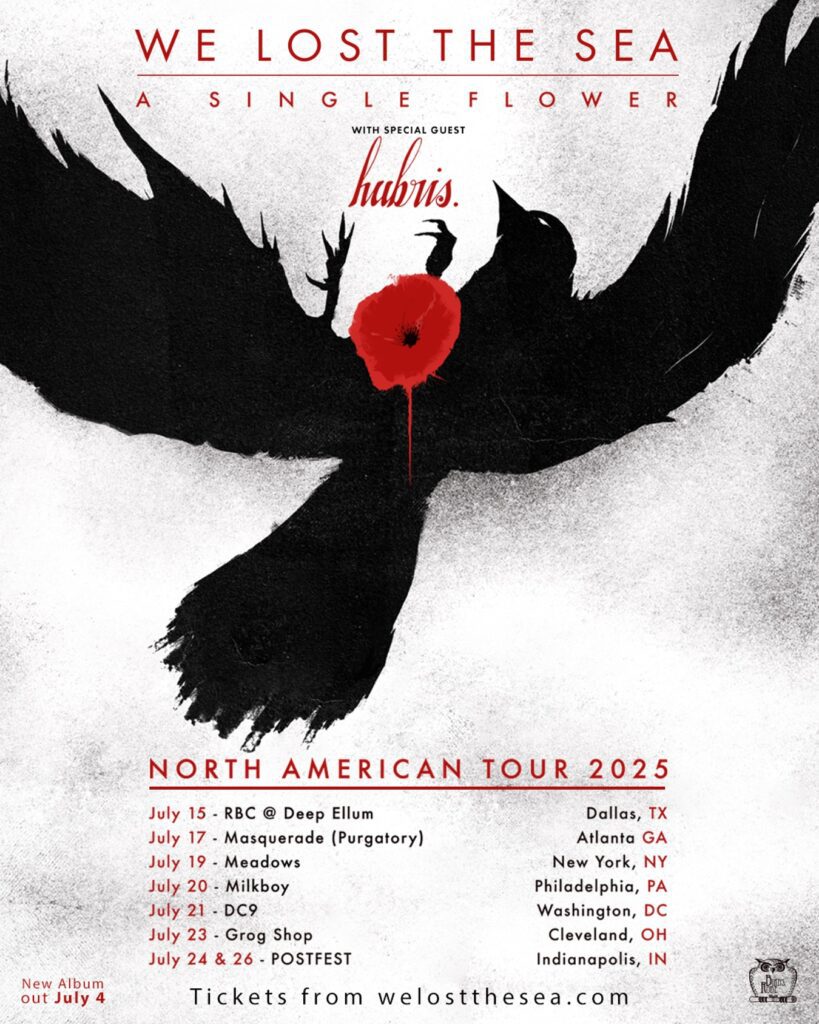
10. You also have some Australian dates coming up in October/November. Last time I saw you the crowd demanded an encore and we got “Balaklava Cold” sans vocals, and it also popped up with vox just before Covid hit. Is there any chance of hearing some more earlier stuff sometime in the future?
We will never say never. Those songs are a big part of our DNA and I love them. The Quietest Place on Earth is my favourite record of ours, well until this new one and I love throwing down heavy riffs with vocals. However, we also want to move on as a band and back ourselves for our newer stuff. But maybe, If we can convince Johannes from CoL to jump up with us, sure!
Thanks for the interview and best wishes for Flower and the tours!
Thanks man, see you at the shows!
We Lost The Sea links:
https://welostthesea.bandcamp.com/
https://www.instagram.com/welostthesea
https://www.facebook.com/welostthesea
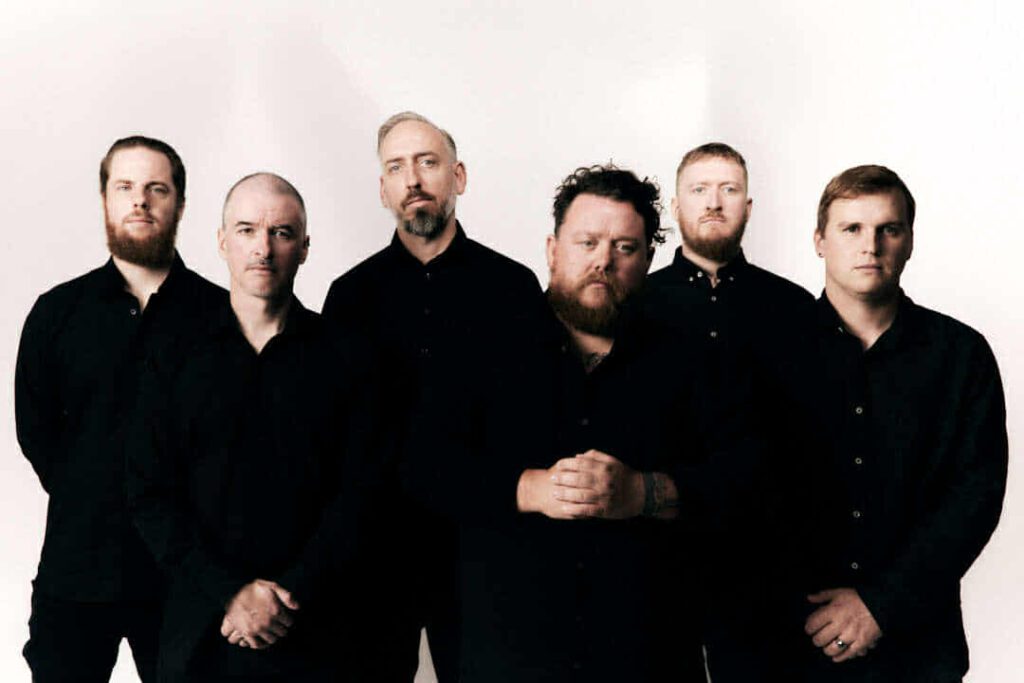
Interview by Gilbert Potts
See also:
We Lost The Sea – A Single Flower album review by Nick Dodds
We Lost The Sea – Triumph & Disaster review by Gilbert Potts
